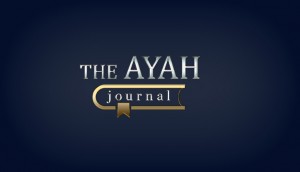
15 AYAAT. 15 PRODUCTIVITY POINTERS.
“Let there arise out of you a group of people inviting to all that is good (Islâm), enjoining Al-Ma’rûf (i.e. Islâmic Monotheism and all that Islâm orders one to do) and forbidding Al-Munkar (polytheism and disbelief and all that Islâm has forbidden). And it is they who are the successful” [3:104].
Mirror, Mirror on The Wall…
A title of an article I once read said: “Being religious without being a jerk.” I know one of our productive duties is to help each other to stay on the straight path. But there are actual etiquettes for doing this (shouting at a random stranger in the street something is haram is not one of them!) The Prophet  advised us that each one of us is like a mirror to others, and that we should safeguard their rights in their absence as well as their presence.
advised us that each one of us is like a mirror to others, and that we should safeguard their rights in their absence as well as their presence.
So how can we be like a mirror to others?
And what does it mean to safeguard their rights?
Here are a few dos and to don’ts to keep in mind:
1. Don’t look for the weaknesses of others. (Does a mirror seek defects?)
2. One should not be criticised in one’s absence. (Does a mirror reflect someone in absentia?)
3. One should not exceed limits in criticising someone else. (Does a mirror magnify or diminish any features?)
4. Criticism should be forthright and free of any ulterior motive. (A mirror does not entertain any revenge or grudge!)
5. One’s criticism should be made with sincerity, genuine concern, pain and love. This removes any bitterness caused by criticism. Sincerity signifies your concern for the ultimate accountability in the Hereafter, and you help your fellow Muslim to help avoid any punishment for him on the Day of Judgement.
All too often we are quick to criticise others, especially in their absence; but this serves no purpose other than to hasten our own punishment.
The call here is to invite others to what is best (and to put in into practice ourselves) and to criticise others only in a productive way that will facilitate them to strive for what is better.
—



